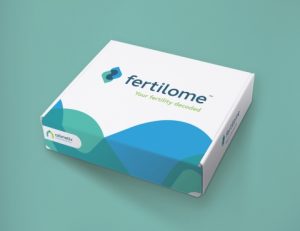Celmatix has just launched Fertilome, a new genetic screening test that can help women with endometriosis and other conditions discover how their DNA could be influencing their reproductive health.
The genetic screening gives women access to insights that allow them to be proactive in managing their long-term fertility potential.

The genetic test was developed after eight years of research, including a systematic literature review and meta-analysis to identify genetic variants that were associated with the most common female reproductive conditions.
Besides endometriosis, these conditions can include polycystic ovarian syndrome, or primary ovarian insufficiency – a precursor to early menopause.
“Women can now make potentially life-defining decisions about how to proactively plan for the family they want to build and be more efficient in overcoming fertility difficulties they are experiencing using better, more personal information than age,” Piraye Yurttas Beim, PhD, Celmatix founder and CEO, said in a news release.
Today, age is cited as the number one fertility-related risk factor for women. It is behind most decisions to freeze eggs and it is one of the most important factors reported when women receive counseling about their chances of success with fertility treatment.
The new genetic screening test is expected to be helpful to women with reproductive difficulties who wish to expand their families beyond their 30s or 40s, if they carry fertility-related DNA markers associated with reproductive problems.
“OB-GYNs see women each day who are trying to conceive, sometimes after just a few weeks, or months, but other times longer,” said Aaron Caughey, MD, associate dean for women’s health research and policy at Oregon University.
“However, there hasn’t been a tool for physicians to use to better understand and to guide patients who may be more likely to encounter difficulty conceiving and need to seek the help of a specialist earlier, or to counsel women who want to have children in the future and may need to consider egg freezing to preserve optionality,” Caughey said.
“A test like Fertilome allows OB-GYNs to have these conversations with our patients, helps patients to understand what their own genetic signature might say about their fertility potential, and allows them to take charge of their reproductive health,” he said.
Fertilome was developed in a laboratory following the guidelines of the Clinical Genome Gene-Disease Clinical Validity Classification Framework, the American College of Medical Genetics and Genomics (ACMG), and the Association of Molecular Pathology (AMP).
“I’m thrilled that, with Fertilome, fertility specialists now have genetic-level insight into what may be causing a particular patient to be experiencing reproductive challenges,” said Amber Cooper, MD, medical and IVF practice director the Centers for Reproductive Medicine and Wellness.
“Genetic tests like this will help drive the next generation of treatment plans and help us start to focus on family building plans that consider future fertility potential as well as trying to help a patient get to a healthy pregnancy in the short term,” she said. “This insight will also be tremendously helpful for women in their 30s who are considering egg preservation.”

